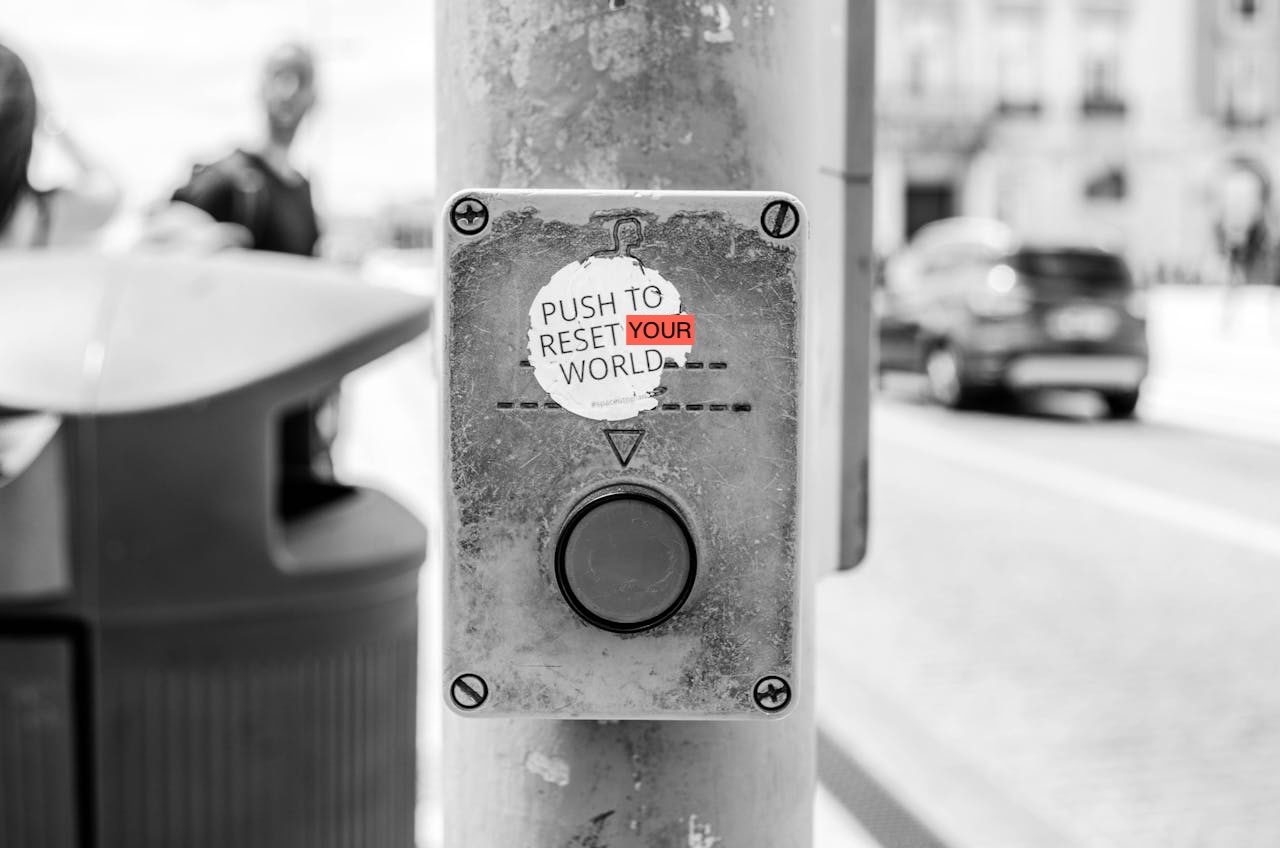

Imagine sitting down to work, and within minutes, you have entered a state of intense focus. Hours pass, and you feel energized, not drained. Your to-do list shrinks fast, and your output is not just more but also better. It feels like fiction. Who sits down the moment they get to work and can start being productive? That is the power of deep work.
Many of us undervalue this ability (and mode of schedule organization), even though it can be a game changer in a world full of distractions.
Deep work, a concept popularized by Cal Newport, is focused, distraction-free work that pushes your cognitive limits. Unlike shallow work—emails, meetings, or social media scrolling—deep work helps you get high-value results in less time. It’s not just for writers, programmers, or researchers; anyone wanting to improve their productivity and work satisfaction can benefit from prioritizing deep work.
Prioritizing deep work in your daily routine improves focus, efficiency, and creativity. Most importantly, it helps you work smarter and improve your work-life balance (that’s something we could use more of, right?).
Let’s examine the key benefits of prioritizing deep work and how you can accommodate it in your schedule.
1. More Productivity Without Burnout
Modern work culture often celebrates busyness over actual productivity. People unwittingly associate frazzledness, responding to copious emails, attending countless meetings, or multitasking as a sign of efficiency.
But research says otherwise. A study by a professor of informatics at the University of California (Gloria Mark) found that, on average, it takes around 23 minutes and 15 seconds to re-enter a state of focus after being interrupted. Now imagine the tasks busy people have to switch to and from. What are the chances they’re fully focused on everything they need to be focused on? It’s pretty slim.
Deep work eliminates this problem. You do more in less time when you carve out uninterrupted time to focus on a meaningful task. Instead of feeling exhausted from juggling multiple tasks, you feel a sense of accomplishment and clarity.
Productivity tools like Calendar, Microsoft Outlook, and Google Calendar make scheduling deep work easier by allowing you to block off focus periods. If you commit to a few hours of deep work a day, you’ll likely get a full day’s work done in a fraction of the time.
2. Stronger Cognitive Abilities
Prioritizing deep work strengthens your brain’s ability to focus. Much like muscle, focus improves with practice. The more you practice deep work, the easier it gets to get into flow—a mental state where you work effortlessly and at your best. This is especially important in an age of digital distractions.
A study by Microsoft found that the average human attention span dropped to just 8 seconds. That’s a shorter attention span than a goldfish. Deep work helps combat this decline by training your brain to focus for longer periods.
Over time, you’ll get better at critical thinking and problem-solving. This skill is valuable in almost every profession, whether you’re an entrepreneur, marketer, engineer, or educator. (After all, the best ideas don’t come from scrolling through notifications.)
3. Better Work in Less Time
When you fully immerse yourself in a task, the quality of your output improves. Deep work allows you to tap into your best thinking without distractions getting in the way. Compare that to shallow work, where constant interruptions force you to restart your thoughts over and over.
Take writers, for example. A novelist who works in deep focus for three hours will produce better writing than one who checks emails every 20 minutes. The same applies to coders, designers, analysts, and professionals in any field that requires deep thought.
Incorporating deep work into your routine means you can get projects done faster—without sacrificing quality. As a result, you’ll produce more impactful work that stands out in a crowded world.
4. Less Stress and Mental Clutter
Juggling multiple tasks and reacting to constant notifications can be overwhelming. This scattered approach to work creates mental clutter, making it hard to prioritize and complete important tasks. Deep work eliminates this chaos by encouraging structured, focused work sessions.
A well-organized schedule reduces stress levels. Instead of scrambling to finish tasks at the last minute, you steadily progress on meaningful work. This sense of control over your time reduces anxiety and increases job satisfaction.
Using time blocking with tools like Calendar or Todoist can help. Planning deep work sessions makes you more likely to stick to them and ensure critical tasks get your undivided attention.
5. Career Advancement and Competitive Edge
In a world where many people struggle to focus, those who master deep work gain a serious advantage. Employers and clients value people who can produce high-quality work efficiently. Deep work helps you learn faster, think strategically, and solve complex problems—skills that set you apart in any industry. You become an indispensable asset in your field when you produce results without wasting time on distractions.
It’s no coincidence that some of the most successful people—Elon Musk, Bill Gates, and J.K. Rowling—are known for their deep, uninterrupted work. (They aren’t checking their phones every five minutes, that’s for sure.)
6. Better Work-Life Balance
Work-life balance seems impossible in an always-connected world. Many professionals struggle to “switch off” after work and are burnt out and dissatisfied. Deep work helps counteract this by ensuring work gets done efficiently during work hours, leaving more time for personal life.
When you focus deeply, you get more done in fewer hours. That means no more late-night email sessions or working on weekends to catch up. Instead, you can enjoy downtime without guilt, knowing your work was done during the day. To that end, a clever way to complete all your jobs daily is using the pickle jar trick.
Setting defined boundaries, such as scheduling deep work in the morning, creates a sustainable workflow. Over time, this will help you compartmentalize your work time from your personal life.
7. More Creativity and Innovation
Creativity thrives in a distraction-free environment. Many of history’s greatest thinkers, from Albert Einstein to Steve Jobs, valued solitude and deep focus as key components of their creative process.
When you allow your mind to focus deeply on a task, you open the door to new ideas. Studies have shown creative insights often emerge during periods of intense focus or in moments of rest following deep work.
If your job requires creativity in writing, marketing, programming, or design, prioritizing deep work can help you generate original, stand-out ideas.
How to Make Deep Work a Habit
To experience the full benefits of deep work, you need to make it a habit. Here’s how:
- Schedule deep work sessions: Block off uninterrupted time on your calendar. Treat these sessions as non-negotiable meetings.
- Eliminate distractions: Set notifications that can come through on your phone, close unnecessary tabs, and inform colleagues when you’re in focus mode.
- Use time-blocking tools: Platforms like Calendar, Notion, and Toggl can help you structure your day effectively.
- Start small and scale up: Begin with 60-90 minutes of deep work a day and increase as your focus improves.
Deep work is not a productivity trick; it’s a long-term strategy for success. Those who focus deeply will always have the advantage in a world full of distractions. Prioritizing deep work means better productivity, less stress, and better work-life balance (and honestly, who wouldn’t want that?).
Overall, there are many great productivity and time management resources out there. It’s important to remember that what works for some may not work for others. For this reason, it can be a good idea to try various strategies to find the ones that work best for you. Once you find your favorite strategy that produces results, you’ll be well on your way to improved productivity.
Featured Image Credit: Photo by Kássia Melo; Pexels











Deanna Ritchie
Editor-in-Chief at Calendar. Former Editor-in-Chief and writer at Startup Grind. Freelance editor at Entrepreneur.com. Deanna loves to help build startups, and guide them to discover the business value of their online content and social media marketing.